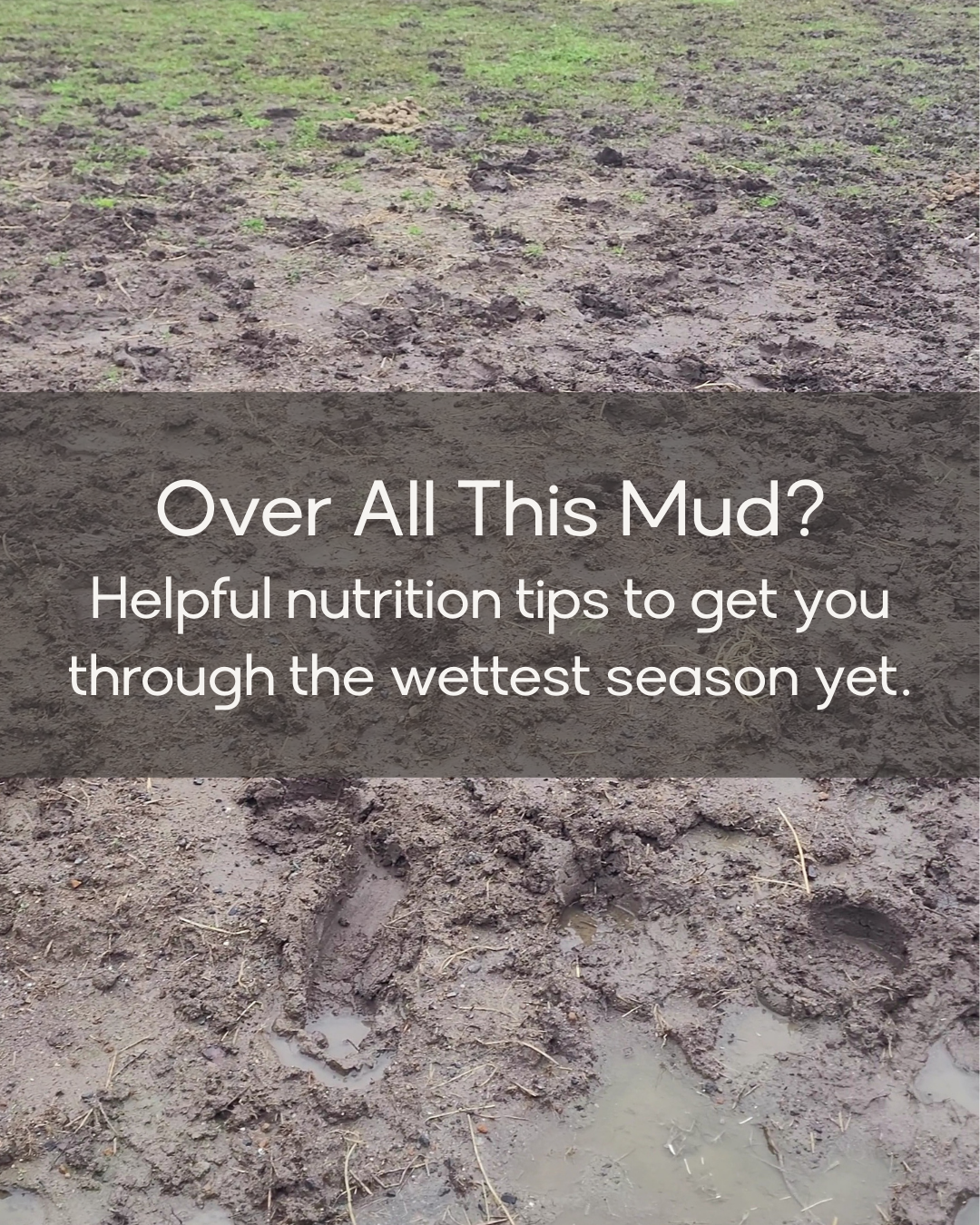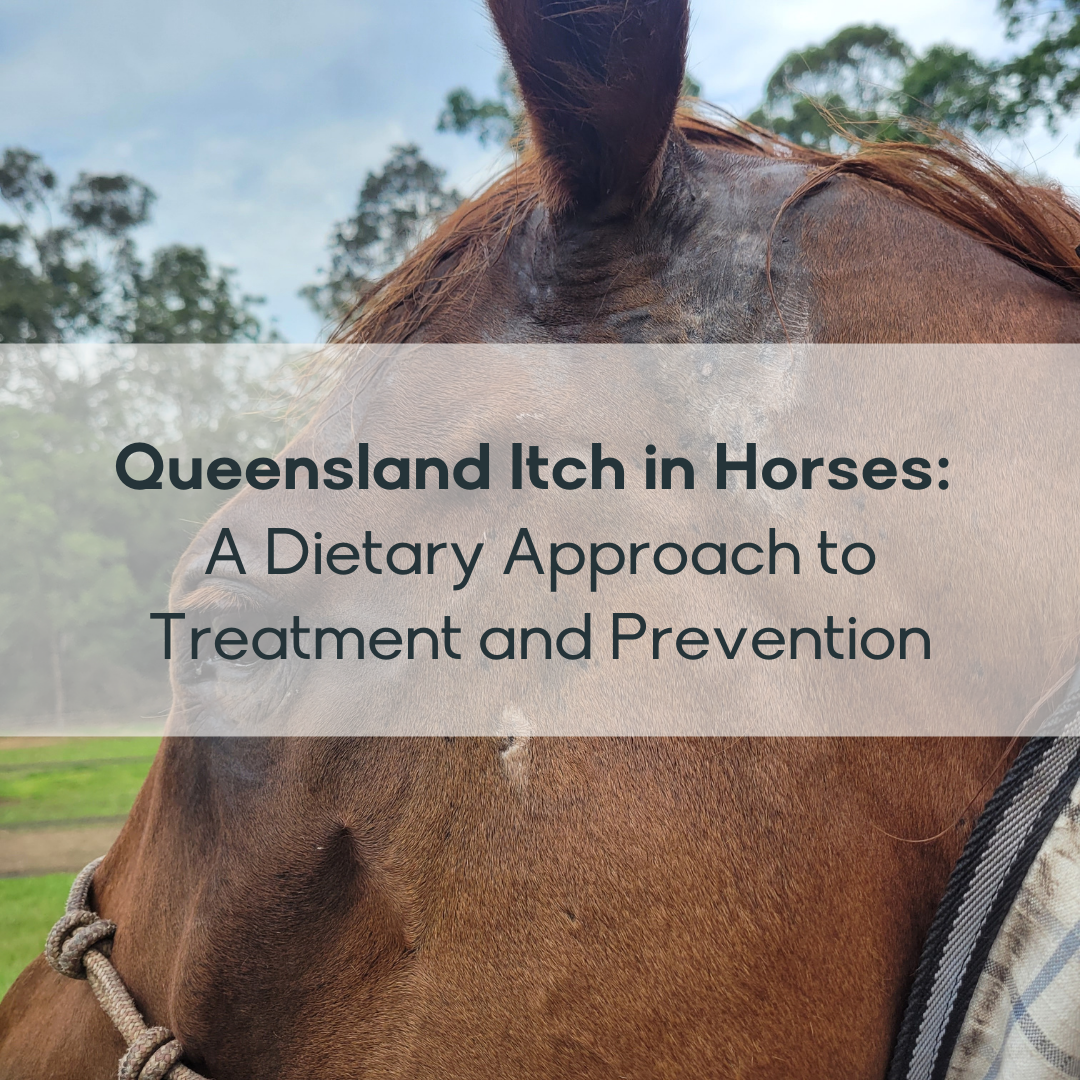
Feeding Horses Through the Mud: Nutrition Strategies for Wet, Cold Weather
Struggling with mud, rain, and cold paddocks? Discover expert equine nutrition tips to protect your horse’s hooves, skin, weight, and gut health this winter. Practical, science-backed advice for thriving through the wet season.


Not All Colostrum Is Created Equal: Why Statera Bio-Colostrum Stands Apart
Not all bovine colostrum is created equal. In this article, we break down what makes Statera Bio-Colostrum a superior choice — from its creamy, nutrient-dense appearance to its high IgG content, gentle freeze-drying process, and batch-tested consistency. Learn why cheaper brands may cost you more in the long run and how to spot real quality when it comes to supporting your horse’s gut and immune health.

Winter Feeding for Horses: Finding Balance in a Season of Extremes
As the cold sets in, we’re seeing two very different realities play out across the country: in some areas, it’s relentlessly wet—paddocks are mushy, rugs are never quite dry, and we’re dealing with hooves that never seem to get a break. Meanwhile, other regions are crying out for rain, with dry pastures, dusty winds, and limited feed options.
No matter where you are, one thing is certain: winter feeding isn’t a one-size-fits-all job. But with a bit of planning and some honest talk about what your horse really needs, you can keep them healthy, happy, and nutritionally supported right through to spring.

Building Weight & Topline on Your OTTB
Supporting an off-the-track Thoroughbred as they transition into a new chapter takes time, patience, and the right nutrition. By focusing on gut health, quality fibre, protein, and balanced vitamins and minerals, you're not just helping them gain weight—you’re helping them thrive.

Managing Equine Gastric Ulcers with Bodywork and Nutrition
Proper Nutrition is vital for all horses' overall health and performance. Nutrition impacts everything from immune systems, bone health and energy levels as well their ability to recover from exercise. Nutrition will be different for all horses based on their age, activity levels, behavioral issues etc. Every horse requires a balanced diet that is tailored to its specific requirements, this is something Statera Equine can offer.

Why Foal Nutrition Matters More Than You Think
Foal nutrition starts long before they take their first wobbly steps—and getting it right can set the stage for a lifetime of soundness, growth, and success. In this blog, I break down the key stages of feeding foals (and their mums), common mistakes to avoid, and what you really need to know to support healthy development. Whether you're raising a future athlete or a beloved paddock pony, this is one area you don’t want to guess your way through.

Queensland Itch in Horses: A Dietary Approach to Treatment and Prevention
Queensland Itch, also known as Sweet Itch or Summer Itch, is a frustrating and often debilitating condition for horses, particularly in warm, humid climates. Caused by hypersensitivity to bites from Culicoides midges, it leads to relentless itching, skin irritation, and even hair loss. While environmental management and topical treatments play a role in reducing symptoms, equine nutrition is a powerful yet often overlooked tool in managing this condition.

Balancing Calcium and Phosphorus in Your Horse's Diet: Why It Matters More Than You Think
The Hidden Balancing Act
When it comes to equine nutrition, it’s easy to get lost in the sea of supplements and feeding trends. But at the core of every healthy horse’s diet lies a crucial mineral duo: calcium and phosphorus. While horse owners often focus on protein percentages and energy levels, the calcium-phosphorus balance can quietly make or break your horse’s health.
The truth is, it’s not just about feeding enough of these minerals—it’s about feeding them in the right ratio. This ratio is fundamental for bone health, growth, and overall performance, yet it’s commonly overlooked.

Acidosis and Laminitis: What Every Horse Owner Should Know
When it comes to equine health, few topics are as complex and concerning as the connection between hindgut acidosis and laminitis. As someone who frequently encounters laminitis-related concerns from my clients, I find this to be a particularly pressing issue in horse care. Recently, I came across an article titled "All You Need to Know About Acidosis Laminitis" (October 26, 2023), which dives deep into the intricate relationships between diet, gut health, and laminitis. This blog breaks down the key points of the article and explores how its insights can help horse owners better manage and prevent these potentially life-threatening conditions.
